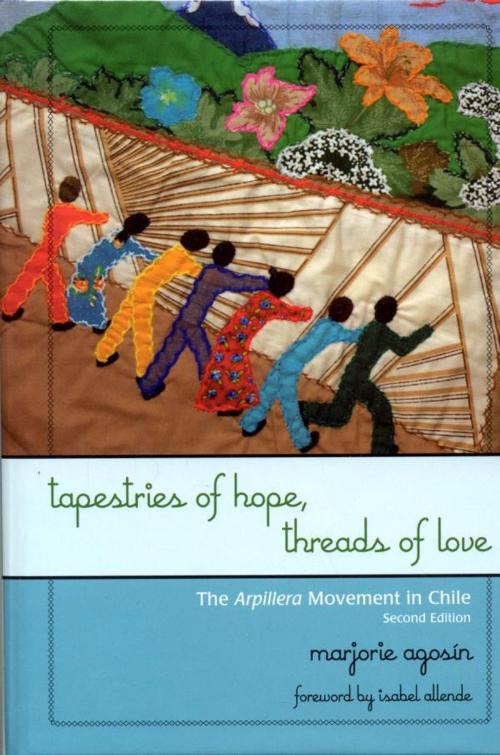Tapestries of Hope, Threads of Love
The Arpillera Movement in Chile
Nonfiction, History, Americas, Latin America| Author: | Marjorie Agosín | ISBN: | 9781461666356 |
| Publisher: | Rowman & Littlefield Publishers | Publication: | October 10, 2007 |
| Imprint: | Rowman & Littlefield Publishers | Language: | English |
| Author: | Marjorie Agosín |
| ISBN: | 9781461666356 |
| Publisher: | Rowman & Littlefield Publishers |
| Publication: | October 10, 2007 |
| Imprint: | Rowman & Littlefield Publishers |
| Language: | English |
Tapestries of Hope, Threads of Love tells the story of ordinary women living in terror and extreme poverty under General Pinochet's oppressive rule in Chile (1973–1989). These women defied the military dictatorship by embroidering their sorrow on scraps of cloth, using needles and thread as one of the boldest means of popular protest and resistance in Latin America. The arpilleras they made—patchwork tapestries with scenes of everyday life and memorials to their disappeared relatives—were smuggled out of Chile and brought to the world the story of their fruitless searches in jails, morgues, government offices, and the tribunals of law for their husbands, brothers, and sons.
Marjorie Agosín, herself a native of and exile from Chile, has spent more than thirty years interviewing the arpilleristas and following their work. She knows their stories intimately and knows, too, that none of them has ever found a disappeared relative alive. Even though the dictatorship ended in 1989 and democracy returned to Chile, no full account of the detained and disappeared has ever been offered. Still, many women maintain hope and continue to make arpilleras, both in memory and as art.
This new edition of the book, updated for students, includes a reaction to the death of General Pinochet, a chronology of Chile, several new testimonies from arpilleristas in their own words, and an introduction by Peter Kornbluh. It retains a section of full-color plates of arpilleras, an afterword by Peter Winn, and a foreword by Isabel Allende. Students and interested readers will find the arpilleras beautiful, moving, and ultimately hopeful, and the testimonies a powerful way to learn about the history of contemporary Latin America and the arpillera movement in Chile.
Tapestries of Hope, Threads of Love tells the story of ordinary women living in terror and extreme poverty under General Pinochet's oppressive rule in Chile (1973–1989). These women defied the military dictatorship by embroidering their sorrow on scraps of cloth, using needles and thread as one of the boldest means of popular protest and resistance in Latin America. The arpilleras they made—patchwork tapestries with scenes of everyday life and memorials to their disappeared relatives—were smuggled out of Chile and brought to the world the story of their fruitless searches in jails, morgues, government offices, and the tribunals of law for their husbands, brothers, and sons.
Marjorie Agosín, herself a native of and exile from Chile, has spent more than thirty years interviewing the arpilleristas and following their work. She knows their stories intimately and knows, too, that none of them has ever found a disappeared relative alive. Even though the dictatorship ended in 1989 and democracy returned to Chile, no full account of the detained and disappeared has ever been offered. Still, many women maintain hope and continue to make arpilleras, both in memory and as art.
This new edition of the book, updated for students, includes a reaction to the death of General Pinochet, a chronology of Chile, several new testimonies from arpilleristas in their own words, and an introduction by Peter Kornbluh. It retains a section of full-color plates of arpilleras, an afterword by Peter Winn, and a foreword by Isabel Allende. Students and interested readers will find the arpilleras beautiful, moving, and ultimately hopeful, and the testimonies a powerful way to learn about the history of contemporary Latin America and the arpillera movement in Chile.















